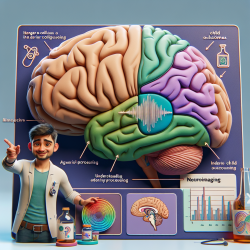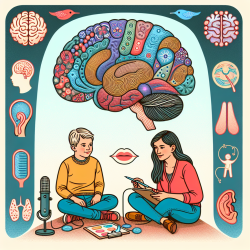Introduction
In the quest to reduce health disparities, particularly among underserved minority populations, self-administered mind-body practices (MBP) have emerged as a promising, low-cost, and accessible solution. These practices empower patients to actively engage in self-care, promoting health and managing symptoms without the need for ongoing clinical intervention. For practitioners, understanding and implementing these practices can enhance patient outcomes and foster stronger patient-provider relationships.
The Role of Self-Administered Mind-Body Practices
MBP, such as yoga, tai chi, meditation, and progressive relaxation, focus on integrating mind and body to improve physical and mental health. These practices are particularly relevant for minority populations who often face barriers to conventional healthcare. By teaching patients simple techniques, practitioners can help them manage stress, improve resilience, and maintain overall health.
Research indicates that MBP can be effective in managing conditions such as depression, hypertension, chronic pain, and PTSD. The self-administration aspect of these practices allows patients to take control of their health, fostering a sense of empowerment and engagement.
Implementing MBP in Clinical Practice
Practitioners can integrate MBP into their practice in several ways:
- Referral to Resources: Guide patients to community or online resources where they can learn more about MBP.
- Informal Education: Share personal experiences and knowledge of MBP during patient interactions to encourage adoption.
- Workshops and Sessions: Organize formal sessions to teach patients about MBP, supported by institutional backing.
While many healthcare providers may not have received formal training in MBP, there is a growing trend in medical and nursing schools to include complementary health practices in their curricula. Continuing education opportunities also exist for practitioners seeking to expand their knowledge and skills in this area.
Benefits of Interprofessional Collaboration
An interprofessional approach to healthcare, where practitioners from various disciplines collaborate, can significantly enhance the delivery of MBP. This collaboration allows for a more comprehensive understanding of patient needs and the integration of diverse skills and knowledge. By working together, healthcare teams can effectively teach and recommend MBP, improving patient outcomes and reducing health disparities.
Encouraging Further Research
While existing research supports the efficacy of MBP, further studies are needed to evaluate their cost-effectiveness and long-term benefits. Practitioners are encouraged to engage in research and contribute to the growing body of evidence supporting MBP. This research can help refine practices, improve implementation strategies, and ultimately enhance patient care.
Conclusion
Self-administered mind-body practices offer a viable solution for reducing health disparities and improving patient outcomes. By incorporating these practices into clinical settings, practitioners can empower patients, foster stronger relationships, and contribute to a more equitable healthcare system. To explore the original research paper, please follow this link: Self-Administered Mind-Body Practices for Reducing Health Disparities: An Interprofessional Opinion and Call to Action.










